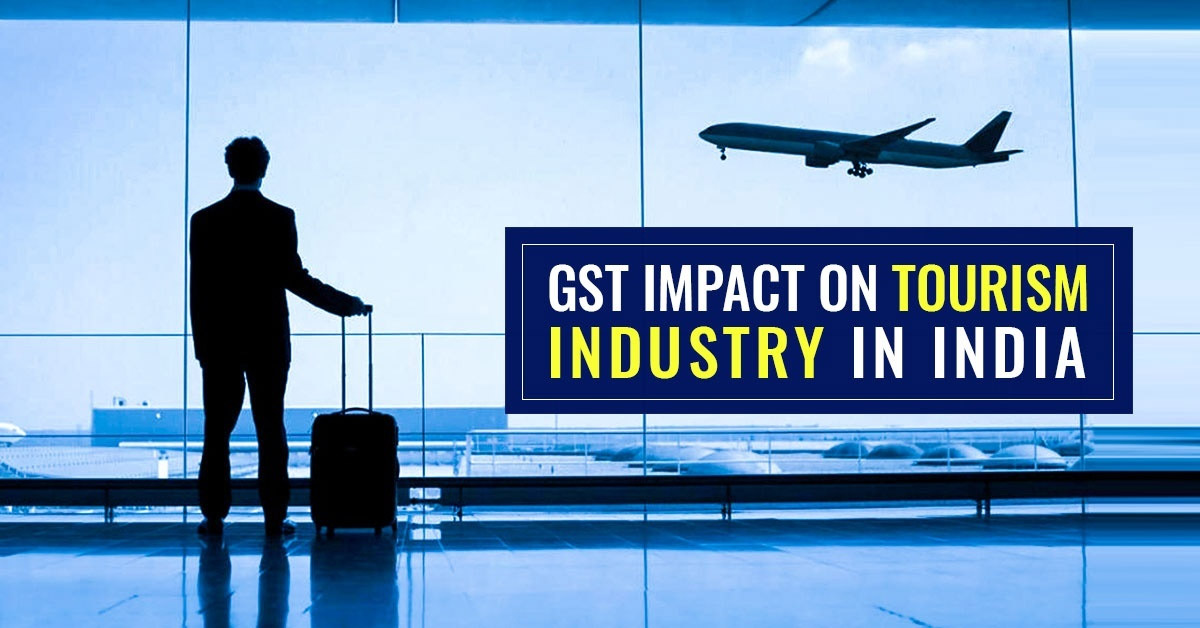Impact of GST on the Aviation Industry Impact of GST on the Aviation Industry
As India completes 1 year under the GST regime, most of the rules have been applied and clarified by the Finance Ministry and after a period of chaos and confusion, there is reasonable clarity on most provisions.

Source
GST was conceived and implemented to formalize the fragmented and unregulated economy that escapes the tax net and there are several sectors like real estate and transport that have benefitted immensely. On the contrary, airline companies did not have to undergo a big overhaul in their book-keeping systems as they are already heavily regulated and organized.
Also, considering that only 3-4 % of the population is able to afford flights, the airline industry is supposedly let off lightly compared to other luxury goods and services.
The key impacts on the civil aviation industry due to GST are listed below:
1. Rates of Tax on Airline Seats
Services Tax applicable on all bookings made in the previous regime has been replaced by new GST rates for both business and economy class seats. Previously, economy class seats were taxed at 5.6% service tax, this has been reduced to 5% under GST. The same has been increased from 8.4% to 12% for business class passengers.
2. Input Tax Credit
Under GST, companies can claim Input Tax Credit (ITC) for certain goods and services used during the course of business. For the civil-aviation industry, companies can claim ITC only on the input services provided to economy passengers for the economy class seats. Credit cannot be claimed for the goods used to service them. However, the rules are more favorable to business class seats, as airlines can claim ITC for food items, services, spares parts, and other inputs, except for fuel.
The inability of airlines to claim ITC on goods used for economy class passengers is in deference to the rules under the previous tax regime in which airlines could claim CENVAT (Central VAT) credit for all inputs used (excluding avation turbine fuel) in servicing economy and business class passengers.
Read: The Impact of GST on the Telecom Industry
3. Fuel Excluded
As with all petroleum and petroleum products, Air Turbine Fuel has been kept outside the ambit of GST. Airlines continue to pay VAT or State Sales Tax and excise duty on ATF and can claim the credit only for VAT. The aviation industry has suggested to the government that if ATF is brought under GST, the government could earn an additional ~7% in taxes.
4. Transfer of Spares
Airline companies store spare parts in central warehouses between states. These are regularly transferred to airports in different states as per the requirement. Aircraft seats, parts, and battery are taxed at 28%, aircraft engine & motor and nut bolts are charged at 18%, whereas landing gear and propellers are taxed at 5% under GST.
The airlines had protested this move as they claimed that taxing parts would impact them by INR 3,000 crores per year as no ITC can be claimed on these parts.
5. Import and Re-Import of Aircraft Spare-Parts
The government has imposed a tax on the servicing and import of aircraft parts and this has put a huge burden on the airlines' profitability. The Federation of Indian Airlines (FIA), an association comprising of private airlines, has estimated that the imposition of tax at 28% on these imports will cost the airlines an additional INR 47.5 bn every year. Hence, it has written to the ministry of civil aviation requesting them to exempt the import of serviced parts from GST. Imported serviced parts were not taxed under the previous tax regime.
6. GST on Leased Aircrafts
When GST was launched, carriers had to pay taxes on the cost of the aircraft in addition to the tax on lease rentals paid.
As per a recent change in rates, the government has exempted aircraft imported on lease from the levy to avoid double taxation.
7. GST on Airbourne Cargo
The government has imposed a GST rate of 18 percent on international cargo. Airline carriers and the Chamber of Commerce and Industry, has stated that given the expectations that India is poised to be one of the top 10 freight markets globally, subjecting international freight to 18% will be counter-productive to the robust growth the segment has experienced over the last decade.
Video: E-way bill automation in Tally
The Journey Ahead
There are several issues where the airline carriers have made representations to the government and finance ministry for relaxing certain rules which are under consideration.
You can contact us for any queries regarding the impact of GST on the aviation sector.